1st Year
MONTH
11
1st Year – Month 11
Your Baby Learns About Love From You
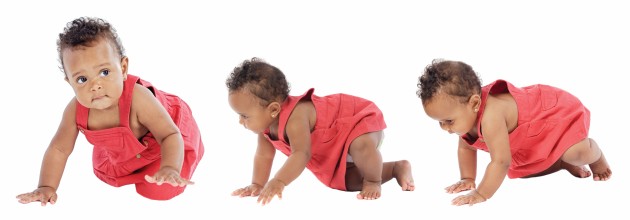
Your baby learns about most things from you, especially about love. Babies, just as grown-ups, need love and attention.
Rewarding your baby with a smile, hug, or kiss is better than rewarding with a new toy. Your baby will know that they are loved, and that is very important for their growth. With your support, they will feel that they can tackle anything.
Some parents think they must set special times aside to play with or to teach their baby new things. That’s a good idea. But sometimes you don’t have big blocks of unhurried time.
Children are happy with lots of little bits of your time and attention. They learn to amuse themselves with your help. There are times when you are waiting for an appointment or standing in line. Below are some ideas to play with your child in those little bits of time.
It takes less than 2 minutes to:
- Give your child a hug and a kiss
- Tweak your baby’s toes
- Play pat-a-cake or peek–a-boo
- Show your baby their nose or chin, or your nose
- Admire your baby’s shoes
- Gently tickle your baby’s tummy at bath time
- Lift your baby up over your head
- Point to an interesting leaf or pretty flower and make sure your baby sees it
- Show your baby the pictures in a book
- Give your baby a big smile
What’s It Like to Be 11 Months Old?

How I Grow and Talk
- I stand by myself for a moment or two. Once I get good at standing, I may love it so much that I’ll refuse to sit down!
- I hold a toy in one hand while I pull myself up on my feet with the other hand.
- I may even wave and turn my body around while standing, without falling down.
- I walk if you hold only one of my hands.
- I easily squat down, stoop, bend over, and then get up.
- I hold a pencil or crayon and love to make marks.
- I can take a spoon and put it in my mouth.
- I know that words are used to identify things.
- I may use one word to mean a whole thought.
- I babble and mumble gibberish a lot.
How I Respond
- I want to do everything you do, but I want to do it in my own way.
- I try to get your approval. I hide when I know you are not pleased with what I have done.
- I may test you to see how much I can get away with.
- During times of family stress, I may suck my thumb or fingers. It gives me comfort. If I do it a lot, see if I’m getting enough attention and if I’m feeling secure.
How I Understand and Feel
- I see the expression on your face and copy it. I’m learning from you!
- I try to bark and meow when I see a dog or a cat. I am learning what people, animals, and things do.
- I like to look at pictures in books and magazines. Teach me about the sounds animals make and show me their pictures in books.
- I know that tools will help me. I might push a chair in front of me to steady my walking.
- I may cling to you, especially in new situations.
- I may cry, scream, and have tantrums if I don’t get my way.
Some children do things earlier or later than described here. Most differences are normal. Focus on what your child can do and get excited about each new skill. If you notice that your child is lagging behind in one or more areas for several months, use this list to talk with your doctor about your child’s development.
Welcome to the NO-NO’s
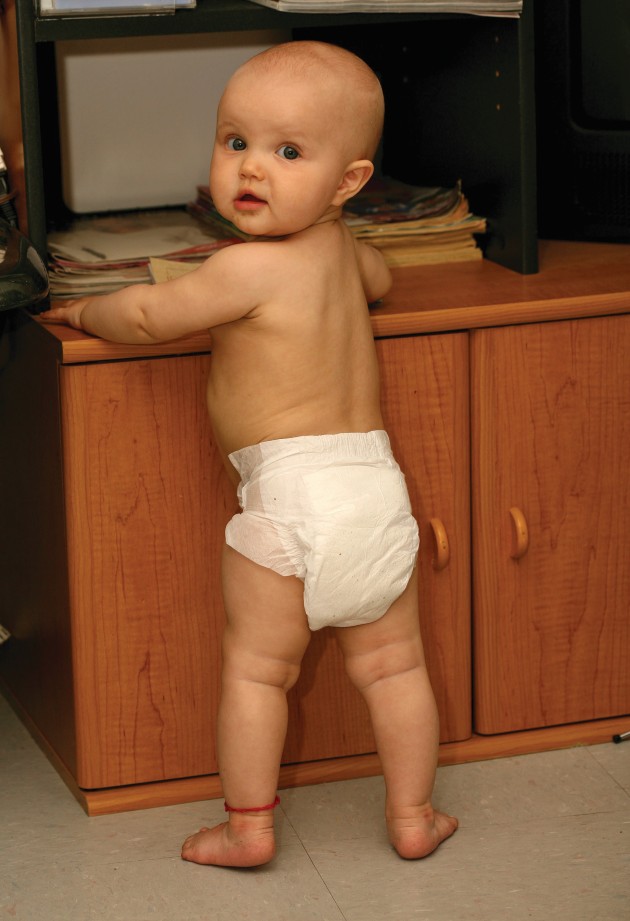 It may seem as if you are always telling baby what NOT to do. No wonder! An 11-month-old loves their independence as they move around and touch more things. So, discipline becomes part of your daily life. Do everything you can to make it easy for your baby to do the right thing.
It may seem as if you are always telling baby what NOT to do. No wonder! An 11-month-old loves their independence as they move around and touch more things. So, discipline becomes part of your daily life. Do everything you can to make it easy for your baby to do the right thing.
Be realistic in your expectations. Babies this age are into everything. They poke, dump, lick, squeeze, toss, and climb. They are picky about food, and they splash the milk in their cereal. Think about how your child is learning and growing. When your child sees something bright or interesting, they learn by feeling and tasting it. “Look, but don’t touch” doesn’t mean much at this age.
Make your expectations clear. Let your baby know when you are unhappy with their behavior. Be sure to emphasize what behavior you are unhappy with. For example say, “Biting hurts! I can’t let you bite me.”
Avoid situations where you must constantly correct your child. At this age, it is easier to put your baby in situations where they can do something that is all right for them to do, rather than to “make them mind.” If you are in a new place, be prepared that your baby will want to explore. You will need to follow them around. It is not realistic for your baby to sit still at this age.
Discipline is helping your child develop the habits of behaving. The habits of behaving well will develop over the years. They will come as your baby has a longer attention span and is able to explore more carefully.
Love and affection are part of effective discipline. The relationship between you and your child develops from everything you do for and with your child. Show your child how much you love them by playing with them and saying that you love them. As your child grows in their love and trust for you, they will want to behave in a way that will please you.
Water Safety
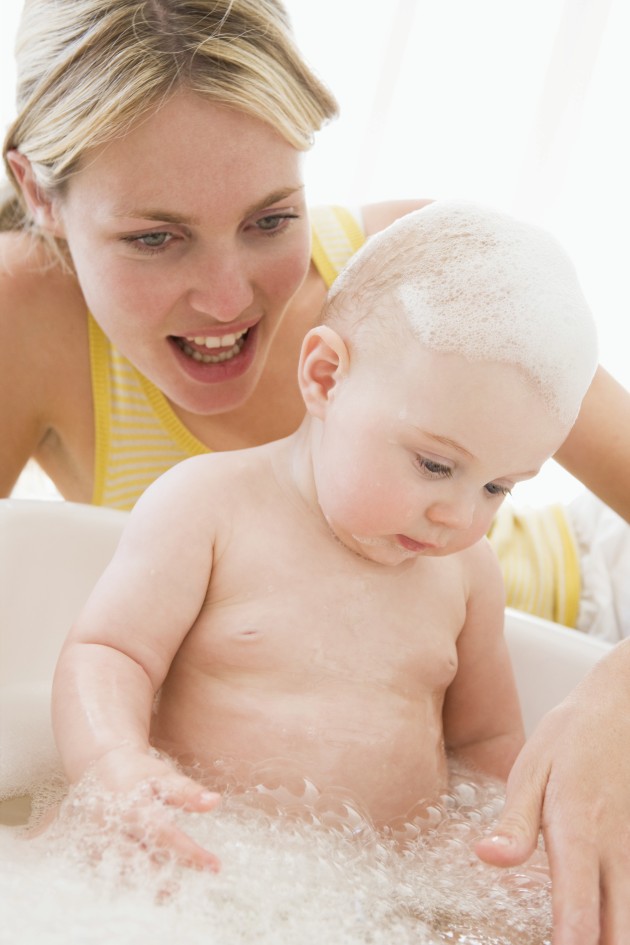 Water play in the bathtub and pool or at the beach can be a lot of fun for your baby. But water can be dangerous. Here are some tips to make water time safe and fun:
Water play in the bathtub and pool or at the beach can be a lot of fun for your baby. But water can be dangerous. Here are some tips to make water time safe and fun:
Doctors now advise against swimming lessons for infants and toddlers. Their bodies are not yet good at fighting some diseases that are easily passed in water, according to the American Academy of Pediatrics.
Don’t let your baby swallow lots of water at the pool or beach; it could make them sick.
Floating toys are fun, but they don’t substitute for a watchful parent and they don’t prevent drowning.
NEVER leave a young child alone near water, not even for a minute. Teach your child to wait for an adult before getting into water.
If you have or use a pool, teach proper poolside behavior. Don’t allow running or rough play around the pool. Never leave a pool halfway covered. A child could get trapped under the cover.
To prevent sunburn, use a waterproof sunscreen with SPF (sun protection factor) of at least 15. A higher SPF of 30 is best for those with fair or sensitive skin. Put more on at least every two hours or sooner if water washes the sunscreen off. However, it’s not a good idea to keep your baby in the sun for that long. Use an umbrella or tent when you’re outside for the day.
Babies have drowned in buckets and open toilet bowls because their heavy heads became trapped when they fell in. It’s possible for a baby to drown in less than 2 inches of water.
Learn infant CPR so you are prepared in case of an accident. Ask your doctor, clinic, or local American Red Cross about CPR classes.
Feeding Your Baby:
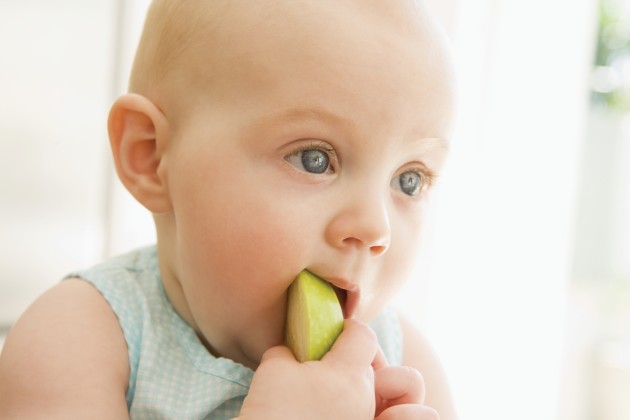
Fat Does Not Equal Healthy
If you have a very active baby, you may notice that your baby isn’t gaining weight as fast as they did in the past 10 months. That’s because your baby is more active and is using more calories. Even though your baby is not gaining as much weight as before, they are still healthy.
A fat baby is not a healthy baby. At this age, babies should be developing muscle tissue, not fat.
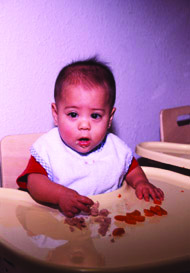
Your Baby Is In Charge of How Much They Eat
Worrying about what your baby eats, or does not eat will only make both of you nervous. Don’t expect your baby to clean their plate or to eat “just one more mouthful.” Trust them to be the best judge of how much to eat.
Expect your baby to play at mealtime. Splashing in the cereal and dropping food on the floor is all a part of learning. Usually this starts to happen when your baby has lost interest in eating. If you don’t want this to continue, take the food away from your baby and let them play with something else.
As your baby moves around to explore the world, they will become more independent. They may be eager to try out this new independence by insisting on feeding themself. Or they may be a little scared of their new abilities and may cling to you at mealtimes. They may even refuse to hold their cup or spoon and demand to be fed.
Whether your baby clings to you or is a self-feeder, try to be calm and patient. It will pay off in fewer feeding problems now and in the future.
Who Can You Talk to About Your Baby?
It helps to have people around who you can talk to and learn from. If you have a child care provider, consider talking with them. Child care providers have experience with lots of children and families. Is there a group for new parents in your area? Try to get to their meetings. It’s a great time to compare notes.
First Words
Your child’s first words may be one-word puzzles. Your child may say, “Go,” but may mean “Where did Daddy go?” or “I want to go to the car.” With one word, your child is trying to tell you a complete thought.
When your baby talks to you, let them finish their sentence before you talk. Say back to your baby what you think they’re trying to say.
High Self-Esteem = Feeling Good About Yourself
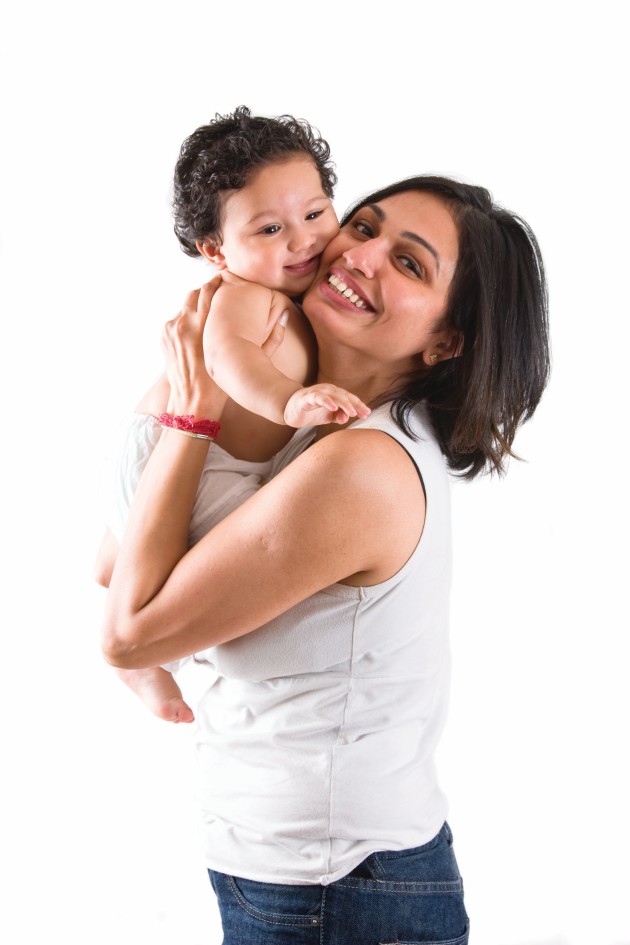 How do you want your child to feel about themself? Do you want your baby to grow up thinking they are a good person and able to handle things in life? Do you want them to get along with others and to share their feelings?
How do you want your child to feel about themself? Do you want your baby to grow up thinking they are a good person and able to handle things in life? Do you want them to get along with others and to share their feelings?
The way a person feels about themself is called self-esteem. High self-esteem means you feel good about yourself. Self-esteem begins at home. If you want your child to develop high self-esteem, you have to feel good about them and let them know.
- Tell your baby how important they are to you. Share lots of hugs, kisses, and smiles. Give them some of your undivided attention every day, and really listen and pay attention to them.
- Allow your baby to develop at their own rate. Pushing them to do something that he’s not ready to do will only frustrate them and cause them to have less self-confidence.
- Use positive discipline. When your child does something that you don’t like, you can correct them in a way that teaches without hurting their self-esteem. Say, “I get angry when you (name what he’s doing that you don’t like).”
- Point out at least five things your baby does right each day. You can say, “I like the gentle way you are petting the kitty” or “You are playing with your sister very nicely.”
Prime Time Parenting
People learn specific skills easier at certain ages than at others. Kids can be experts at rollerblading after an hour, but grandfathers probably need a little longer. These prime times for learning are also called windows of opportunity.
These are times when the brain is most ready to learn something new. It’s as if a window in the brain opens for a while, making it easier to learn certain new skills or gain new knowledge. Then the window closes. When it’s closed, we still learn, but it’s harder.
 Windows of opportunity will open and close during the first few years of life. Your baby’s brain grows larger and more active, depending on what they see, hear, taste, touch, and smell.
Windows of opportunity will open and close during the first few years of life. Your baby’s brain grows larger and more active, depending on what they see, hear, taste, touch, and smell.
While they are so young, they depend on you to make the most of their prime times for learning. Continue to encourage your baby to explore. Provide them with objects and toys that interest them, and encourage them to look, listen, taste, touch, and smell, as well as use their body in different ways.
Play with Me: It Helps Me Learn
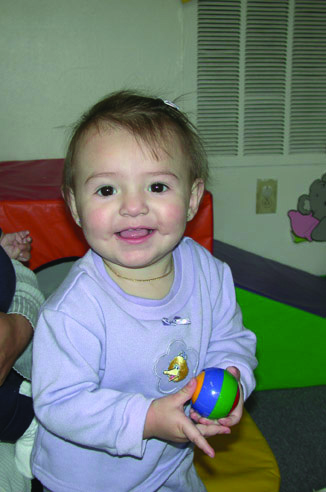 Play Ball: An “Eyes and Body” Game
Play Ball: An “Eyes and Body” Game
Purpose of game: This game teaches your baby to crawl to get things and to find out about them.
How to play: Take a ball that your baby likes and roll it toward, away from, and then to the left and right of them. Say, “Look at the ball. Go get the ball.” Your baby will try to get the ball by crawling after it.
Another Eyes and Body Game
How to play: Move things away from and back to your baby while they watch. This helps your baby see that distance may affect how things look, but it doesn’t change their size.
Wait to Start Toilet Training
Most child development experts suggest waiting until a child is between 2 and 3 years old before teaching them to use the toilet.
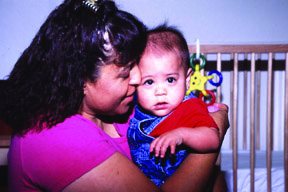
Wait until your baby:
- Has a bowel movement at about the same time every day
- Can tell you in words that they have to go
- Can undo clothing, including snaps and zippers
- Can relax and let the urine or bowel movement out
All Parents Have Good Days and Bad Days

When it comes to parenting, there are good days and there are bad days. Every parent sometimes feels positively worn out. Taking care of a young child can leave you feeling like you never have a moment to yourself unless you find it after midnight, and then you may be interrupted by a small cry.
You may wonder if someone else has found an easier way to do the job. On bad days, you might secretly ask yourself if you are doing something wrong.
No one knows a short-cut to being a good parent. Take heart, you are probably doing fine. A lot of weariness goes along with being a parent.
Bad days are usually followed by good days. All these days will pass as your little one becomes less demanding.
Young children need parents who try to do their best with them every day. That doesn’t mean parents succeed all the time.
When you feel like you’re at the end of your rope, call a good friend to talk and let off steam. Or call your doctor or spiritual adviser. Even though you sometimes feel overwhelmed, that doesn’t stop you from being a good parent; you still care about and love your child. Talking about it shows that you are responsible enough to know when you need to get help.
Reminders
Subscribe: If you are not already a subscriber, you can receive the newsletters direct to your email on your child’s birthday. Register at JITP.info (English) or (Spanish).
Every baby is unique: When reading this newsletter, remember: Every baby is different. Babies may do things earlier or later than described here.
Updates: We are constantly reviewing and updating JITP.info. See our current plans on the About Us page. Do you have questions or corrections? Email us at contact@jitp.info.
Credits: This newsletter was reviewed and updated in 2020 by YaeBin Kim and Dan Weigel (University of Nevada-Reno) and Anne Clarkson (Wisconsin-Madison Extension).